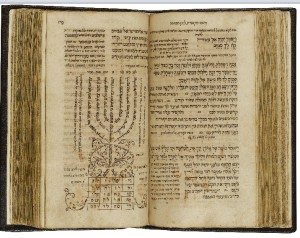 If the purpose of prayer is to accurately and adequately praise God, or even describe God, then we must admit that it will always fail. There is a paradox to all spiritual practice and to all prayer practice. we try to describe God - infinite and pervasive - in words made for our own finite and limited human experience. Just as an artist must paint an image from the three dimensional world in a two dimensional frame, so too the spiritual seeker must try to describe something profoundly true in an artificial frame. Even sculpture, though it has the benefit of three dimensions, can only capture a moment, frozen in isolation amidst the ever-unfolding reality that we inhabit.
If the purpose of prayer is to accurately and adequately praise God, or even describe God, then we must admit that it will always fail. There is a paradox to all spiritual practice and to all prayer practice. we try to describe God - infinite and pervasive - in words made for our own finite and limited human experience. Just as an artist must paint an image from the three dimensional world in a two dimensional frame, so too the spiritual seeker must try to describe something profoundly true in an artificial frame. Even sculpture, though it has the benefit of three dimensions, can only capture a moment, frozen in isolation amidst the ever-unfolding reality that we inhabit.
Perhaps then, the goal of prayer is not to describe God, but to discover ourselves. What we explore is not the vastness of God Out There, but the intimacy of God Inside. As we become more adept, we are able to more convincingly approach and realize what is truly real in our life.
Every word of prayer is inadequate to describe the experience of God. Every painting and sculpture is inadequate to describe and communicate the reality around us. "Praised are You...", "Merciful One....", "God is good...". None of these are True with a capital T. But ironically they can, with practice allow us to begin to understand the nature of mercy, praise, and goodness.
The more we know, the more we realize that each word, meant to symbolize an aspect of our experiences, and each ritual act and each quiet meditation pales in comparison with the emotions and imaginations that they seek to reveal, provoke or describe.
Our recitations, repetitions, and exercises all reveal our limits even as they invite us deeper. The process of refinement and investment in these brush strokes liberates them from the shortcomings of habit and routine. We can invest each move and each word with meaning so that these inadequate words trigger the neurological jump to Davenology/Prayercraft, and in that they become powerful ways to enhance and expand our capacity for creativity.
It is in that creativity that we truly experience and encounter what we call . . . God.

